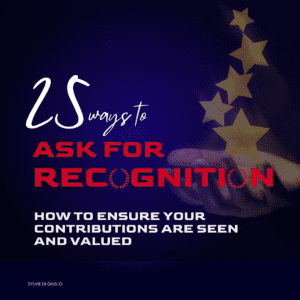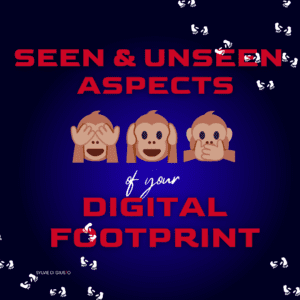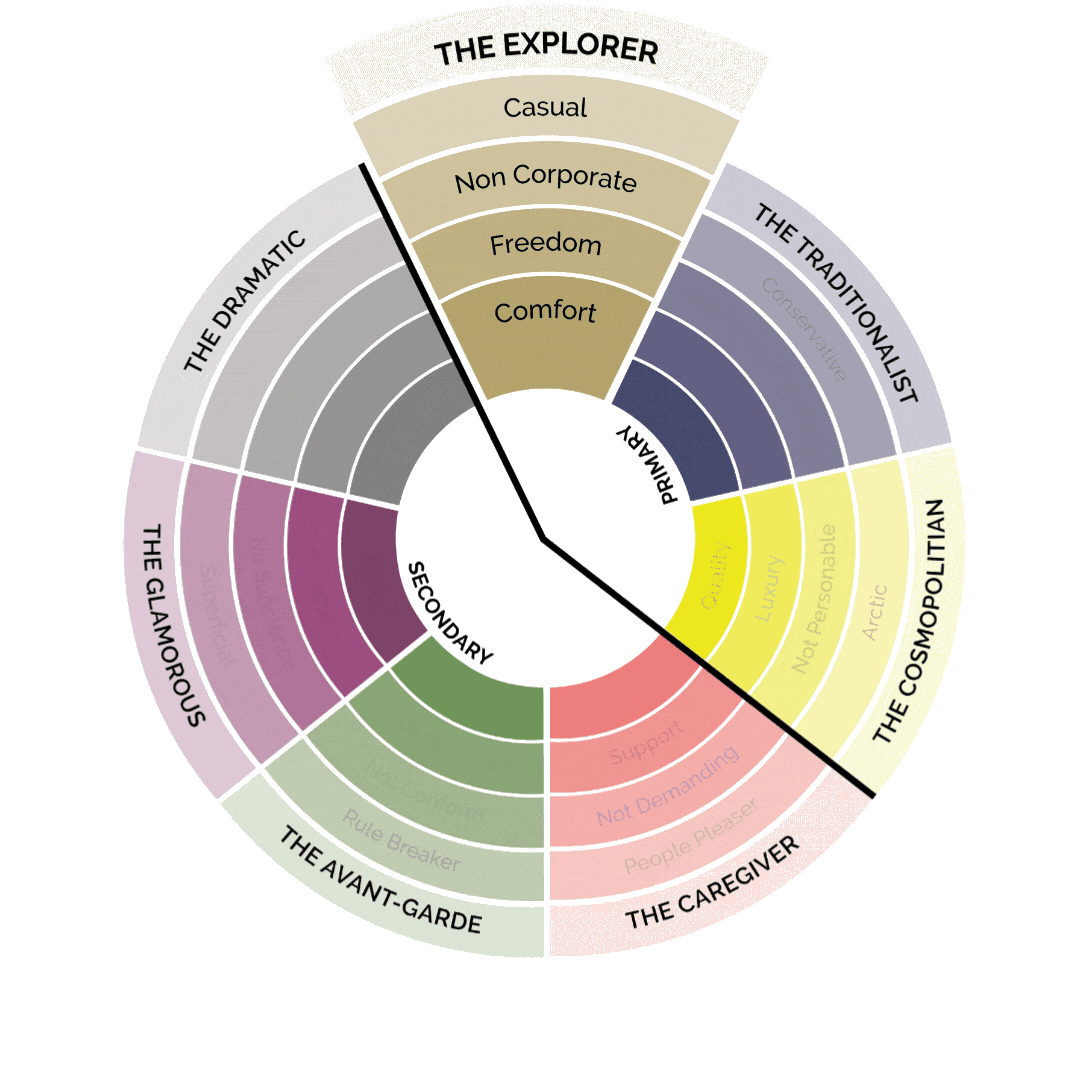DIGITAL FOOTPRINT—The one you are aware of & the one you may overlook
In the boundless realm of the digital world, the essence of your professional reputation has long ago experienced a dramatic shift. The Internet and social media, coupled with an increase in virtual engagements, have reshaped how we present ourselves in the professional sphere.
The traditional metrics of assessing a professional, such as a stellar outfit, a firm handshake or a confident gaze, have evolved. Now, every day you are giving digital handshakes—an engaging LinkedIn profile, a well-crafted bio, a professional headshot, or a well-composed introductory email—frequently initiates professional relationships.
Thus, it’s essential for professionals to meticulously manage their digital portrayals. An impromptu post, an unflattering profile image, or a casual comment can undermine years of credibility. Because, in today’s environment, online searches serve as a preliminary background check, with your digital persona setting the initial tone for subsequent interactions.
The digital breadcrumbs you leave behind, they narrate your story before you ever have a chance to tell it in person.
In this digital domain, every post, click, and email sent contributes to the deliberate construction of your digital footprint—a mosaic reflecting your professional persona. The content you share, the articles you author, and the interactions you partake in are akin to brushstrokes on the canvas of your online presence.
Yet, there is also an unintentional side to this narrative. Subtle digital cues speak volumes. Such as the frequency of your online engagements or a LinkedIn profile with broken links may inadvertently signal negligence or disengagement with current advancements.
For professionals, both the intentional and unintentional elements of your digital footprint demand vigilant management. The symphony of your actions and inactions creates a backdrop for your explicit digital decisions. Together, the overt and subtle craft the comprehensive score of your professional online presence.
YOUR INTENTIONAL FOOTPRINT
Your intentional digital footprint is the deliberate curation of your online presence. Each element, from the usernames you select to the profiles you polish, is like a brushstroke on the grand canvas of our digital identity.
Intentionality in the digital space is akin to the meticulous strokes of a painter, carefully choosing your hues to convey a message, evoke an emotion, or make a statement. It’s the conscious decisions that shape how you are perceived, the calculated interactions that dictate your narrative, and the purposeful creation of an online persona that resonates with the ethos of your professional brand.
Let’s explore the myriad ways in which you can and should actively shape your digital presence, ensuring that the intentional footprint you leave is not only deliberate but also distinctive and authentic to the professional image you aspire to project.

- Consistency Across Platforms: Maintain the same username across all social media platforms.
- Professionalism: Choose usernames that are easily searchable and reflect your professional identity.
- Professional Headshots: Use a high-quality, professional-looking profile picture to foster trust and professionalism.
- Header Images: Select cover photos that align with your professional brand.
- Concise Narratives: Write bios that succinctly summarize your professional credentials and expertise.
- Keywords: Incorporate industry-specific keywords for better searchability.
- Value-Driven Content: Share content that adds value, whether it’s insights, knowledge, or industry news.
- Consistent Voice: Ensure your posts reflect a consistent professional style.
- Visuals: Use high-quality images that align with your professional image.
- Strategic Connections: Connect with individuals and groups that align with your professional interests.
- Interaction: Engage only with those who have beliefs and standards similar to yours.
- Commentary: Be mindful of the comments you leave; they should reflect your professional integrity.
- Shares and Endorsements: Remember that sharing or endorsing content aligns you with its message.

- Curate Your Narrative: Actively monitor—whether self-authored or created by others.
- Content Audit: Periodically review search results for your name and associated terms.
- Content Removal: Remove or request deleting content that doesn’t align with your current professional image.
- Content Creation: Produce regular, high-quality content that showcases your expertise.
- Strategic Imagery: Ensure professional images of yourself are tagged with your name for image searches.
- Other Formats: Make sure to perform your audit on image, video, news, or other search engine tabs.
- Public vs. Private: Be strategic about what you share publicly, as social media posts often appear in search results.
- Alerts: Set up Google Alerts or similar notifications for your name and related keywords.

- Domain Consideration: If possible, use a custom domain that aligns with your brand rather than generic providers.
- Clear Subject Lines: Craft subject lines that are concise and specific, offering a clear preview of the email’s content.
- Appropriate Salutations: Begin with a salutation that matches the level of formality of the relationship.
- Purposeful Content: Start with a clear purpose or objective. Be succinct and respect the recipient’s time.
- Logical Flow: Organize your content with a logical structure, making use of paragraphs and bullet points.
- Relevant Attachments: Only include attachments that are necessary, and mention them in the body of the email.
- Safe Linking: Always verify their safety and relevance before including links.
- Signature: Include your full name, title, organization, contact information, and legal disclaimers if required.
- Consistency: Include visual elements such as logos or professional headshots to reinforce your brand identity.
- Appropriate Sign-off: End your email with a professional sign-off that suits the formality of the correspondence.
- Follow-up Etiquette: Manage expectations regarding follow-ups or next steps, providing a timeline if needed.
- Out-of-Office Protocols: Utilize out-of-office replies during extended absences to maintain communication expectations.

- Username: Choose a name that is professional and recognizable to others in the meeting.
- Profile Image: Select a professional headshot as it is visible when your camera is off or before you join the video feed.
- Professional Appearance: Dress appropriately for the meeting as if you were attending in person.
- Background Setting: Use a clean, organized background or a neutral virtual background to minimize distractions.
- Lighting: Using natural light if possible or supplemental lighting as needed.
- Audio Clarity: Use a good quality microphone or headset to ensure you’re heard clearly.
- Chat: Remember, the chat might be visible to anyone and can also be recorded and downloaded.
YOUR UNINTENTIONAL FOOTPRINT
Your digital footprint also whispers tales of your professional persona through the silent language of unintentional cues. Much like the nuanced inflections of a voice or the subconscious stories of your body language, your unintentional digital footprint communicates between the lines. This shadow narrative, often overlooked, also speaks volumes about our professionalism.
This aspect of our digital footprint is crafted not by the content you intentionally broadcast but by the passive signals you emit. It is like the undercurrent that can either reinforce or undermine the persona you strive to project.
Let’s explore how the seemingly trivial choices you make—or fail to make—can have profound implications for how you are perceived in the professional sphere.
- Frequency: Constantly posting might suggest you prioritize social media over professional responsibilities.
- Currentness: Outdated information on your profiles suggests you’re not up to date with your own professional journey.
- Originality: A lack of original content may suggest an absence of expertise or innovation.
- Profile Completeness: An incomplete profile may be perceived as negligence or lack of thoroughness.
- Writing Accuracy: Persistent grammatical errors could detract from your professional image.
- Photos Quality: Old or low-resolution photos might suggest a lack of concern for personal branding.
- Platform Proficiency: Difficulty with digital tools can suggest you’re not technologically adept.
- Posting Patterns: Irregular posting can suggest unpredictability or lack of engagement.
- Relevant Links: Outdated, irrelevant, broken links can question your attention to currentness and detail.
- Networking Oversaturation: Thousands contacts unrelated to your professional sphere suggest a lack of selectivity.
- Bot Associations: Being followed by numerous bots and fake profiles can undermine your digital credibility,
- Oversharing: Sharing excessive details may question your discretion and professionalism.
- Location Sharing: Publicizing your whereabouts might compromise your safety or privacy.
- Activity Hours: The times you’re active online might indicate your work habits or lifestyle preferences.
- Content Freshness: Stale content could imply you’re not keeping pace with industry developments.
- Time-Sensitive Posts: Discussing outdated events may reflect poor timing or disconnection from current trends.
- Post Reactions: The content you engage with can portray your interests, values, and judgment.
- Jargon Appropriateness: Excessive use of jargon can seem inauthentic or exclusionary.
- Search Ranking: Not appearing on the first pages of search results could be seen as lacking prominence or relevance.
- Modern Standards: Utilizing an outdated email provider might hint at resistance to updating personal tech tools.
- File Formats: Using non-standard file formats could suggest a lack of consideration for the recipient’s ease of access.
- Font Choices: Unprofessional font choices can detract from the seriousness of your documents.
- Emoji and GIF Use: Overuse of emojis and GIFs can diminish the professionalism of your communications.
- Tech Quality: Using outdated technology might suggest a resistance to investing in necessary tools for efficiency.
- Meeting Disruptions: Background noise in virtual meetings can reflect a lack of professionalism or environment control.
- Off-Camera Frequency: Excessive time off-camera might imply disengagement or multitasking during virtual meetings.
- Audio/Video Drops: Frequent technical issues could suggest poor preparation or infrastructure.
- Desktop Disorder: A cluttered desktop during screen shares can imply disorganization.
- Browser Tabs: Visible excessive browser tabs during screen sharing can indicate a lack of preparation or focus.
- Unmuted Notifications: Notifications during a call show a lack of attention to detail and meeting focus.
- Problem Solving: The way technical issues are addressed can showcase your problem-solving skills and composure.
- Auto-Correct Reliance: Over-reliance on auto-correct can lead to embarrassing mistakes or miscommunications.
- Networking Breadth: A narrow network might suggest limited industry reach or lack of collaborative spirit.
- … and many, many, many more.

Discover Your Fair Advantage
If you're aiming to proactively create a digital footprint that not only stands out but also authentically showcases your unique strengths and "superpowers," delving deeper into your personal brand is crucial. Many professionals struggle with identifying and showcasing what truly sets them apart in the corporate landscape. "Discover Your Fair Advantage" is crafted to bridge this gap. This book serves as a comprehensive guide, empowering you to uncover, articulate, and leverage your distinctive qualities and capabilities. It provides you with the tools and knowledge needed to confidently navigate the professional world, ensuring your digital presence is a true reflection of your individual value and expertise.
Interested in more content like this?
Make sure to follow me on Instagram. It’s where I bring my thoughts to life daily. I hope to see you there.




